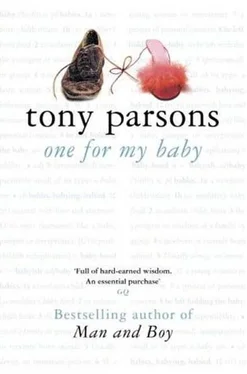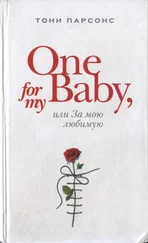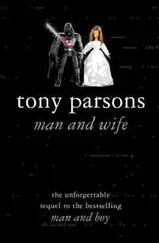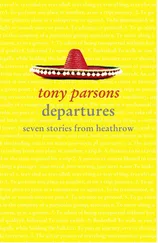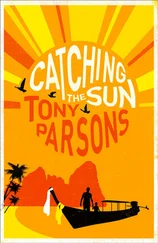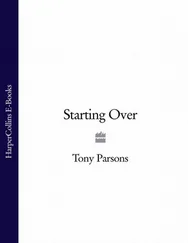“The Serpentine?”
“That’s a lake-in Hyde Park, where there are these wide, sandy paths where people ride horses. Next door to Kensington Gardens.”
“Where Diana lived?”
“That’s the one. She lived in Kensington Palace. That’s a fantastic building. People still put flowers on the gates. Then there’s Saint James’s Park by Buckingham Palace-beautiful. And Kenwood House by Hampstead Heath. It’s this gorgeous house full of Rembrandts and Turners and in the summer they have these classical concerts. Mozart drifting across the lake as the sun goes down over Hampstead Heath…”
“Two pints, love,” calls a voice from down the other end of the bar. “When Mozart gives you a moment.”
I change the tempo when she comes back.
“You shouldn’t miss the Columbia Road flower market. Or the piazzas at the British Library.”
“I love pizza.”
“You can watch a trial at the Old Bailey. You should see Prime Minister’s question time at the Houses of Parliament. The markets at Brick Lane and Portobello Road. The meat market at Smithfield. The Picassos and Van Goghs at the National Gallery…”
I make it sound wonderful. And it is wonderful. That’s the beauty of it. I’m not lying to her. It’s all true. You can get anything you like in this city. And you can get it for free. You just have to know where to look.
She goes off to pull a few pints of O’Grady’s bathwater and when she comes back I tell her about the Harrods food hall and how there are always people giving away top-of-the-range nosh. She gets very animated, and at first I think she must really have been on a rotten diet back home, but it turns out she’s just excited about the prospect of bumping into Dodi Fayed’s dad. I tell her about the music at the Notting Hill carnival, the fountains at Somerset House, the way the Embankment of the Thames looks at night.
It’s all going great. It’s only when they ring for last orders that I realize I was meant to have gone to the airport hours ago, to meet Hiroko’s flight from Japan.
The arrival gate is deserted now, but Hiroko is still waiting for me at the meeting point.
It seems very Japanese the way she has stuck it out, a combination of stoicism and optimism. And here I come, ridiculously late, running across the empty hall to hug her, full of shame and relief, wishing she had someone to meet her who was much nicer than me.
She is exhausted after the flight from Narita, but we decide to go into town and have something to eat. We jump on the Heathrow Express and soon we are in a little noodle restaurant in Little Newport Street.
Hiroko is really starting to fade now. Behind her glasses her eyes are puffy from lack of sleep. But she has some presents she wants to give me. Two pairs of chopsticks, one large pair for a man and one smaller pair for a woman, thirty years of feminism apparently not yet reaching the Japanese chopsticks industry. Then she gives me a sake set-two small cups and a pot. And a bottle of Calvin Klein’s Escape from duty free.
“Thank you for these lovely gifts,” I say. There is something about Hiroko’s formality that encourages me to be formal too. “I will always treasure them.”
She smiles with delight. “Welcome,” she says, with a little nod of her head. And I feel bad that I haven’t even missed her.
We drag her suitcase down to the Bar Italia on Frith Street for a nightcap. And that’s where we see my father.
At first I think I must be hallucinating. My old man is dressed exactly like John Travolta in Saturday Night Fever.
White three-piece suit, heavily flared trousers, dark shirt, no tie, stack-heel shoes. In any other part of the country the way he looks would get him arrested. In the middle of Soho he hardly attracts a second glance.
He comes into the Bar Italia, scanning the faces drinking espresso and latte, sweating heavily inside his white disco suit despite the hour and the season. Then he sees me.
“Alfie,” he says.
“This is Hiroko,” I say.
He shakes her hand.
“I’m looking for Lena,” he says. “We’ve been to a club in Covent Garden.”
“Some kind of seventies night?”
“How did you know? Oh, of course. The clothes.”
I feel that I can’t be too hostile to my father in Hiroko’s presence.
“She’s not here,” I tell him. “Get separated, did you?”
“We had an argument.” He runs a hand through his hair. He’s still a good-looking old bastard. “Nothing really. It was stupid.”
“What happened?”
“It was the music. It was all over the place. The DJ was playing stuff from the sixties, stuff from the eighties. As though it was all the same. Then he put on ‘You Can’t Hurry Love.’ ” He looks at Hiroko. “By the Supremes.”
Hiroko smiles and nods.
“And Lena said, ‘Oh, I love Phil Collins.’ ” My old man shakes his head at the memory of this sacrilege. “And I said, ‘Phil Collins? Phil pigging Collins? This isn’t Phil Collins, sweetheart. This is the original. This is Diana Ross and the girls. This is one of the greatest records ever made.’ And she said she had only heard Phil pigging Collins’s version, and who cares anyway? It’s only a bit of pop music. It’s just a bit of fun. Then I wanted to go home. But she wanted to stay.” He looks at us like a man in shock. “Then she left. Just like that. But she’s not there. She’s not at home.” My old man scans the Bar Italia. “And I don’t know where she is.”
“Do you want a cup of coffee or something?”
“No, no. Thank you. Better keep searching.”
My father says good-bye to Hiroko and me and goes back out into the Soho night, looking like the ghost of discos past.
After that first day, George and I do not get hassled in the park. It’s strange. We are out there very early on Sunday mornings when the place still belongs to the creatures of the night. But they leave us alone. They watch for a few minutes. Then they move on.
And it’s because of George. The way he moves, there’s nothing limpid or weak or namby-pamby about Tai Chi. His movements radiate internal strength. The drunks just walk on by.
“Why did you change your mind about teaching me?”
“I saw how much you want to learn.”
I read Jackie’s essay. It’s depressingly predictable stuff-talking you through Iago’s scheming, Othello’s rage and Desdemona’s innocence as though she is telling you the plot to Lethal Weapon 4. A tale of sexual jealousy, betrayal and revenge. Starring Mel Gibson. Up against the wall, Iago. This time it’s personal.
Just what you would expect from a high school dropout. She even produces Rymer’s hoary old quote about one of the morals of the play being “a warning to all good wives that they look well to their linen.” Whatever that means.
I feel sorry for Jackie, but it gives me a warm feeling to know that I don’t have to teach this stuff anymore.
There’s no cover note with her essay, nowhere to send it back to. Just a business card-DREAM MACHINE: CLEANING THE OLD-FASHIONED WAY-and a mobile phone number. I could wait until I see her at Churchill’s but I don’t want to leave it that long. I want to get rid of Jackie Day as soon as I can.
I call the mobile and get a recorded message that she is working at the Connell Gallery on Cork Street. That’s not far from Churchill’s. I decide to return the essay in person so that I don’t have to come home and find her camping out in our front garden.
Although it’s only a ten-minute walk, Cork Street feels like another city compared to where I work. You can smell the money in the air. I find the Connell Gallery, thinking I will drop her essay off at the reception desk. Then I see her.
She is not dressed for dancing. Her fair hair is pulled back and tied with an elastic band. She is wearing her blue nylon overalls. And she is cleaning the plate-glass window. When she sees me she stares at me for a moment and then steps into the street.
Читать дальше
